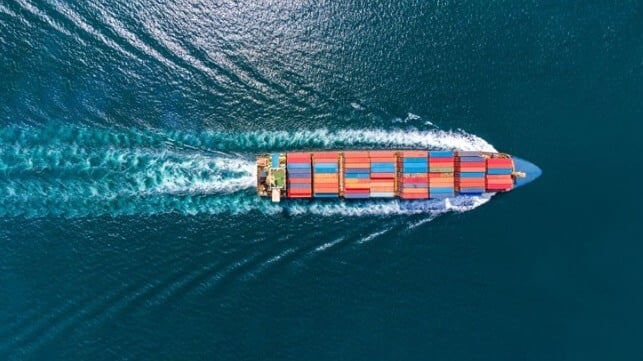Wohnungsbau Sentiment Improves Despite Persistent Order Shortages
German Naval Builder TKMS Sees Shares Jump 23% in IPO Launch
Camping Industry in Baden-Württemberg Reports Strongest Performance in Decades
Knorr-Bremse Acquires Dutch Digital Platform TRAVIS to Expand Commercial Vehicle Services
CSU's Guttenberg Defends Party's Incompatibility Resolution With Far-Right AfD
Developing Nations Bear Brunt of Shipping Disruptions, UNCTAD Report Finds

Global seaborne trade is expected to stall in 2025 with volumes forecast to grow by just 0.5%, according to the United Nations Conference on Trade and Development (UNCTAD). The organization's Review of Maritime Transport 2025 warns that shipping, which carries over 80% of the world's merchandise trade, is entering a period of heightened uncertainty after solid performance in 2024. The slowdown comes despite last year's record nearly 6% growth in ton-miles driven by long-distance rerouting caused by geopolitical tensions.
Political tensions, new tariffs, shifting trading patterns and reconfigured shipping lanes are reshaping the geography of maritime trade. Recent policy measures in the United States and several trading partners, including new tariffs, port fees and targeted restrictions on port calls by foreign-built or foreign-operated vessels, could further disrupt shipping routes and drive up costs. The result is more rerouting, skipped port calls, longer journeys and ultimately increased freight rates that have become more volatile, with disruptions such as the 2024 Red Sea crisis driving surges.
Developing economies, particularly small island developing states, least developed countries and African economies such as Nigeria, are expected to bear the brunt of persistent high transport costs. UNCTAD warns that these nations are most vulnerable because higher freight costs quickly translate into more expensive imports and food insecurity, potentially affecting trade flows and consumer prices. Maritime logistics remain key for developing countries in seizing critical minerals opportunities, which are becoming a new source of tension in global trade.
UNCTAD urged targeted measures to mitigate cost increases, strengthen port performance, and improve trade facilitation. The organization emphasized that transitions to zero carbon, digital systems and new trade routes "must be just transitions" that "build resilience, not deepen vulnerability." While digital systems such as maritime single windows and port community systems offer potential solutions, many developing countries continue to lag behind in digitalization, highlighting the urgent need for investment in both sustainability and technological infrastructure.